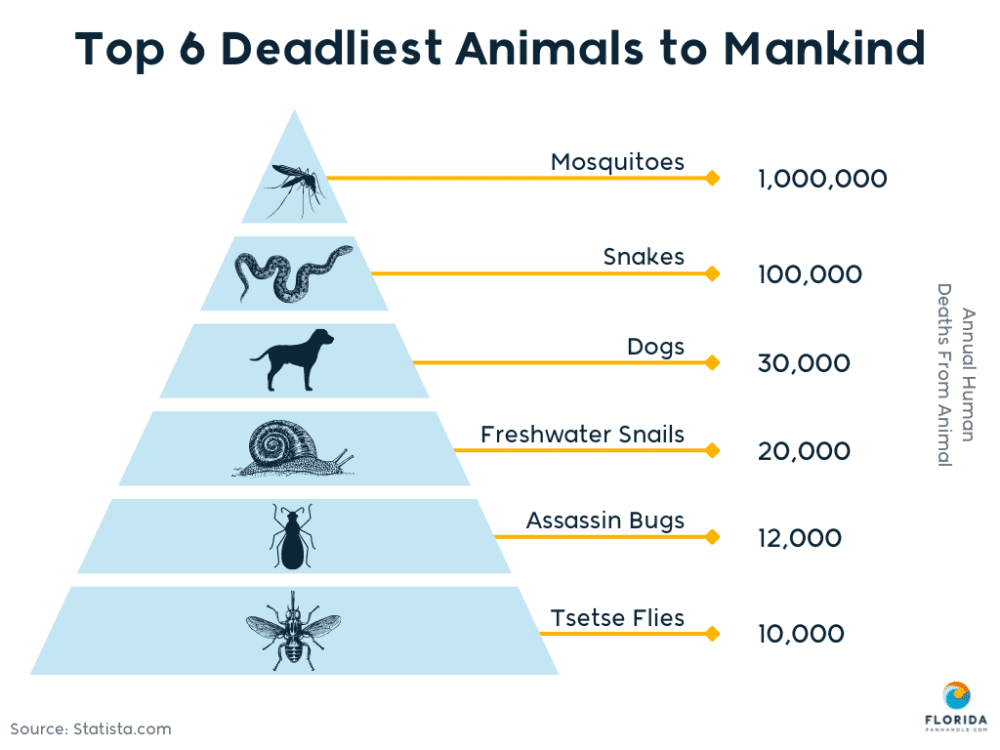Your chances of being attacked by a shark are nearly zero, according to an interactive map that shows where, when, and under what conditions shark attacks are occurring globally. When you look at the data, there are 100 unprovoked shark attacks worldwide annually, but each year humans kill around 100 million sharks. When it comes to humans and sharks, it seems we might have the predator-prey labels the wrong way round.
An Interactive Shark Attack Map with statistics and survival guides has been released by Florida Panhandle, complete with a list of reports that can be filtered for fatal, non-fatal, provoked, and unprovoked attacks. Its intention isn’t to instill fear but the opposite, by demonstrating that not only are sharks not the villain Jaws paints them to be, but that they actually need our help.
“What started out as a fun research project, quickly became a passion project!” said David Angotta, founder of FloridaPanhandle, in a release emailed to IFLScience. “During our research, we learned that in a typical year less than 10 humans are killed by sharks. Contrast that with the astronomical figure of 100 million sharks killed by humans.”
“We believe that this educational shark attack statistics interactive will help the general public realize that shark attacks are incredibly rare and normally survivable. Based on the data, we should not fear the sharks – rather, we should protect them.”
One of the earliest known shark attacks on a human was revealed by 3,000-year-old remains in Japan. It’s thought that a great white or tiger shark took out an adult male from the Jōmon period, meaning he was a fisher-hunter-gatherer searching for food in the Japanese archipelago.

Sharks don’t even make it into the top six for deadliest animals.
Image credit: Florida Panhandle
As the years have ticked by and science has marched on, we’ve got to know more about what’s really going on when sharks attack humans. More often than not, it’s not about hunting humans but a case of mistaken identity. The shadowy outline of a human splashing at the surface isn’t all that easy to distinguish from a seal, as demonstrated in a study that adopted a shark’s-eye-view.
There are sometimes trends among attacks, such as the fact they’re more common when the moon is brighter, during the morning, and on a Saturday. However, as the aggregated data show, you have a higher risk of dying from all sorts of other everyday activities.
“For people that live in the United States, you are approximately 50 times more likely to die by a lightning strike and 10 times more likely to die by a firework accident compared to a shark attack,” continued Angotta.
“While commercial air travel is widely considered to be among the safest modes of transportation, the chances of dying in a plane crash is exponentially greater than being merely attacked by a shark. To put these numbers in perspective, there were 3,416 commercial airline deaths worldwide between 2011 and 2020. In the past 30 years, there have been less than 300 shark attack deaths and 3,000 total attacks.”
Indeed, during 2021 there was even a time when more people were dying from gender reveal parties than shark attacks.
So, get to know the true stats behind shark attacks with Florida Panhandle’s interactive map. As it shows, sharks aren’t the bad guys the silver screen made them out to be.
Source Link: Interactive Shark Attack Map Reveals The Most Common Times, Places, And Conditions